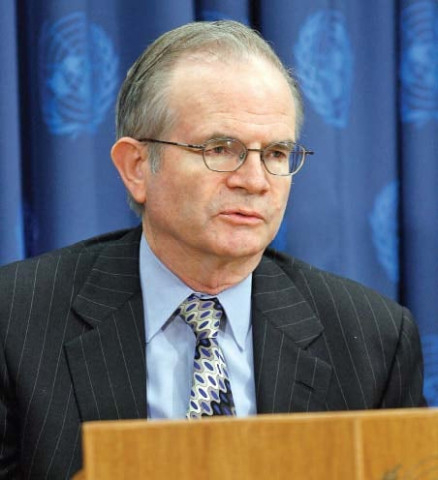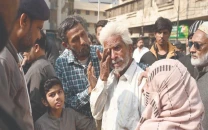Committee to Protect Journalists : Journalists face threats mainly from terror groups and security agencies
More training, documentation of threats needed, agree media representatives.

If you get one threat, ignore it. Do the same with the second one. It is only when you get three threats that you should start to worry.
This was a piece of information shared (but not endorsed) by journalist Mazhar Abbas at a discussion organised by the Committee to Protect Journalists on Thursday. Abbas, who has been reporting since the 1980s, is the deputy director at ARY News, a private television channel.
According to the CPJ’s report for 2010, Pakistan was the deadliest nation for the press last year as violence spread well beyond the Afghan border region. Eight journalists and one media support worker were killed for their work and numerous others were injured, many in suicide bomb attacks.
These alarming statistics brought former Wall Street Journal managing editor Paul Steiger, who is the chairman of the CPJ, to Pakistan for the first time. He was accompanied by their executive director Joel Simon and Bob Dietz, their Asia programme director. With the help of the Pakistan Press Foundation’s Owais Ali, they held a roundtable discussion on the safety of journalists, both local and foreign, reporting from Pakistan. It was discussed how ‘journalist’ should be loosely used to include say stringers, fixers or translators for international journalists who do stories in Khyber-Pakhtunkhwa and can face the ire of militants later on once the English stories hit the local press.
Dietz pointed out that the journalists killed so far “were local reporters covering local news” and were not reporting from conflict zones, which is generally considered to be the main reason for death in such cases.
Since 2002, the number of unsolved murders of journalists in Pakistan has risen to 50. The CPJ, which has been working for the past 30 years to protect journalists throughout the world, has been carefully documenting these cases in Pakistan since 1998, because of their “unique nature”.
“The issues are much more complex in nature than they were before,” said Simon. There have been many instances in which intelligence agencies have been involved, making the case impossible to solve “because not many people want to speak up even if they know the facts.” He gave the example of Hayatullah Khan, a journalist reporting on al Qaeda and the Taliban from the Federally Administered Tribal Areas (Fata) in 2006. Hayatullah was abducted and, later found dead. Since then there has been no progress in the case.
What is needed is for the government to take responsibility so that such cases are brought out into the open and are investigated properly, said Simon.
“Unlike the previous government which was in complete denial over the killings of journalists, the present government is at least accepting it as a reality which is a good sign,” he added. Discussions have been held with President Zardari and Interior Minister Rehman Malik.
Dawn group’s Hameed Haroon said that it is high time that journalists formed a committee that could overlook matters related to their safety and especially document and help assess threats to them.
Almost everyone present agreed that training was desperately needed, not just for reporters who may be exposed to a second bomb blast while reporting on a first, but also for the anchors who question them live. Anchors sometimes ask reporters questions that they cannot answer because they are in dangerous places, such as Fata.
Haroon suggested a ‘main impunity index’ for journalists in order to put countries with unsolved murders to shame.
“Journalists are considered to be the basic tool of information for the masses and it gets difficult if they start running for their lives,” said Steiger. He gave the example of Wall Street Journal correspondent Daniel Pearl who was abducted, and murdered in 2002. “In that case, the criminal was identified and was in custody, but in these 15 cases, nothing came of the investigations.”
Published in The Express Tribune, May 6th, 2011.



















COMMENTS
Comments are moderated and generally will be posted if they are on-topic and not abusive.
For more information, please see our Comments FAQ